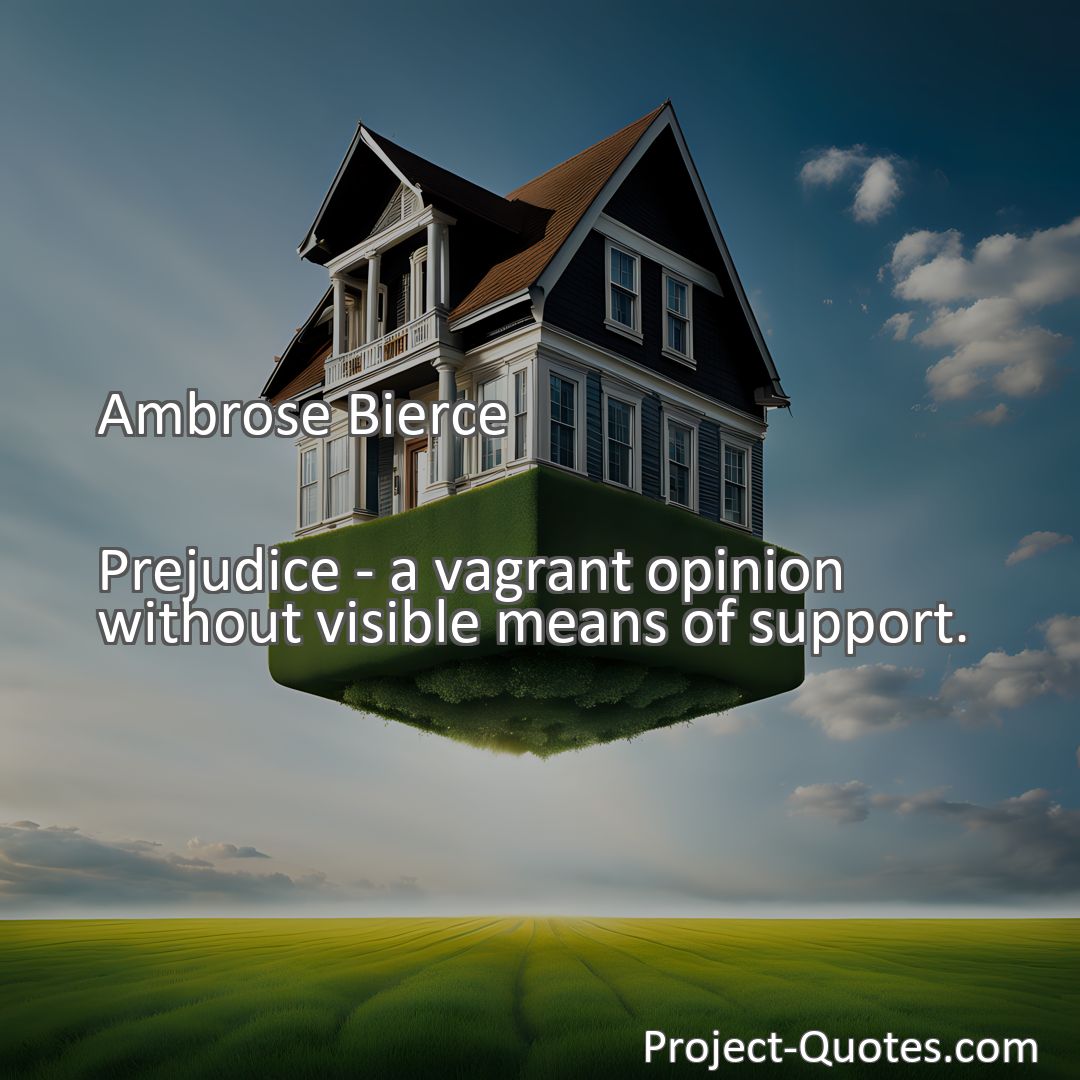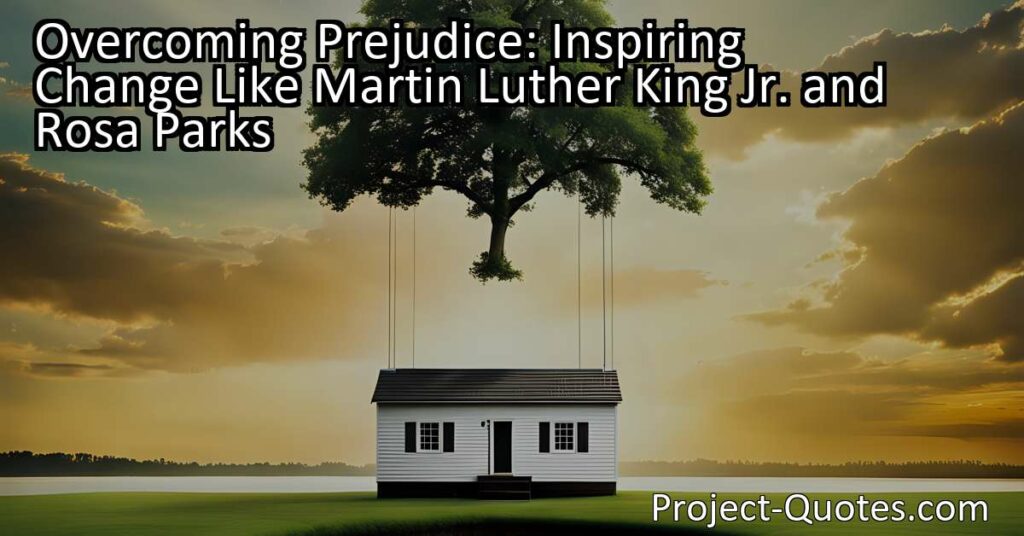Prejudice – a vagrant opinion without visible means of support.
Ambrose Bierce
Prejudice, described as a biased opinion without evidence, has hindered progress and perpetuated discrimination throughout history. Influential individuals like Martin Luther King Jr. and Rosa Parks have fought against prejudice, shedding light on its irrationality and inspiring change. Through education, empathy, and self-reflection, we can challenge and overcome prejudice to create a more inclusive and accepting society.
Table of Contents
Meaning of Quote – Prejudice – a vagrant opinion without visible means of support.
Prejudice: A Vagrant Opinion Without Visible Means of Support
Prejudice, a concept as old as humanity itself, has plagued societies throughout history. It is an opinion without solid foundation, a biased perspective rooted in ignorance and fear. The author, Ambrose Bierce, describes prejudice as a “vagrant opinion without visible means of support.” In his powerful words, Bierce captures the essence of prejudice, exposing its irrationality and shedding light on the harm it causes.
Prejudice is often born out of ignorance. It restricts the mind, preventing individuals from seeking knowledge and understanding. When people hold prejudiced views, it is as if they have already made up their minds without taking the time to gather evidence or engage in meaningful dialogue. Such opinions lack any visible means of support because they are not based on facts or experience.
One of the most common forms of prejudice is racial prejudice. Throughout history, societies have been divided based on superficial differences in skin color. This type of prejudice is particularly absurd because it assumes that the color of one’s skin determines one’s worth or capabilities. There is no factual basis to support such a claim. In reality, the diversity of human beings should be celebrated as a testament to the beauty and richness of our species.
Racial prejudice can be traced back to the days of colonization and slavery, when certain groups of people were deemed inferior solely due to their race. These deeply entrenched beliefs were passed down through generations, creating a cycle of prejudice that was difficult to break. However, as society progressed and individuals like Martin Luther King Jr., Rosa Parks, and Nelson Mandela led movements for equality, the spotlight was shone on the injustice of racial prejudice. This ongoing struggle continues to inspire change and push societies towards a more inclusive and accepting future.
Another form of prejudice that exists in society today is gender prejudice. It is disheartening to witness the discrimination faced by individuals based solely on their gender. Women have historically been marginalized, denied basic rights and opportunities solely because of their sex. Such prejudice limits one’s potential and perpetuates harmful stereotypes. However, as women like Malala Yousafzai, Emma Watson, and Kamala Harris rise to positions of power and influence, gender prejudice is being challenged, dismantled, and gradually eroded.
Prejudice extends beyond race and gender; it can manifest in various forms, such as religious prejudice, socioeconomic prejudice, and even prejudice against those with disabilities or mental illnesses. Each of these biases reflects a failure to understand and embrace diversity. They are opinions without any visible means of support, as they overlook the inherent value and potential of every individual, regardless of their differences.
Breaking away from prejudice requires empathy and education. Teachers, parents, and society as a whole play a crucial role in nurturing open-mindedness and fostering inclusivity. It is essential to expose children to diverse perspectives, cultures, and experiences from an early age. By doing so, we enable them to develop a broader understanding of the world and cultivate empathy towards others.
Furthermore, individuals must challenge their own biases and prejudices. This introspection requires humility and self-awareness. It involves examining the source of one’s prejudice and confronting the stereotypes that have been ingrained in their minds. Only by acknowledging and questioning our preconceived notions can we begin to dismantle the walls of prejudice.
In conclusion, Ambrose Bierce’s quote elegantly captures the essence of prejudice, describing it as a “vagrant opinion without visible means of support.” Prejudice is a harmful and irrational bias that restricts the minds of individuals and perpetuates a cycle of discrimination. It lacks any factual foundation and hinders progress towards a more inclusive society. However, through education, empathy, and self-reflection, we can challenge prejudice and work towards a future based on understanding and acceptance. Let us strive to build a world where prejudice is seen for what it truly is: an opinion without visible means of support.
I hope this quote inspired image brings you hope and peace. Share it with someone who needs it today!


